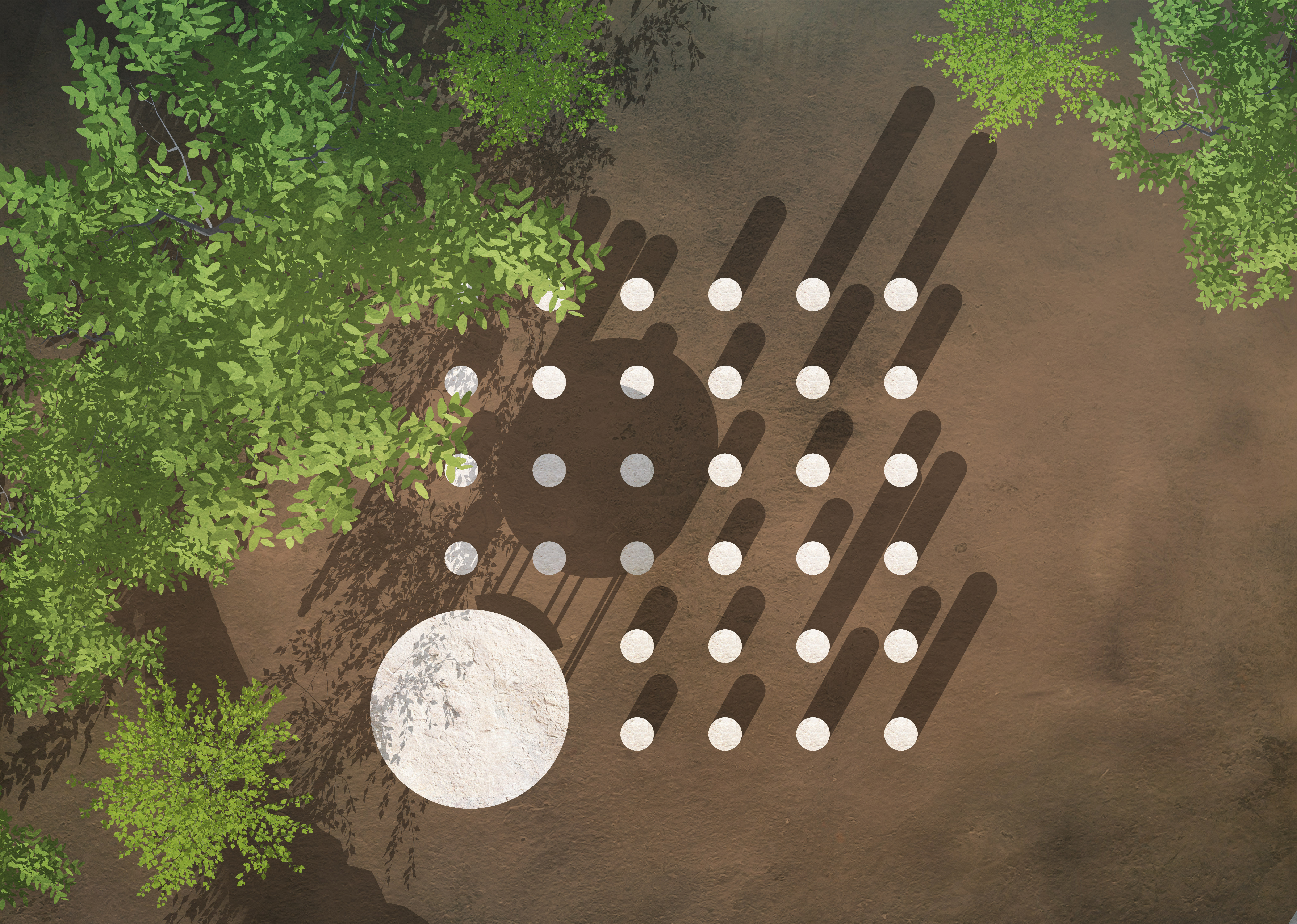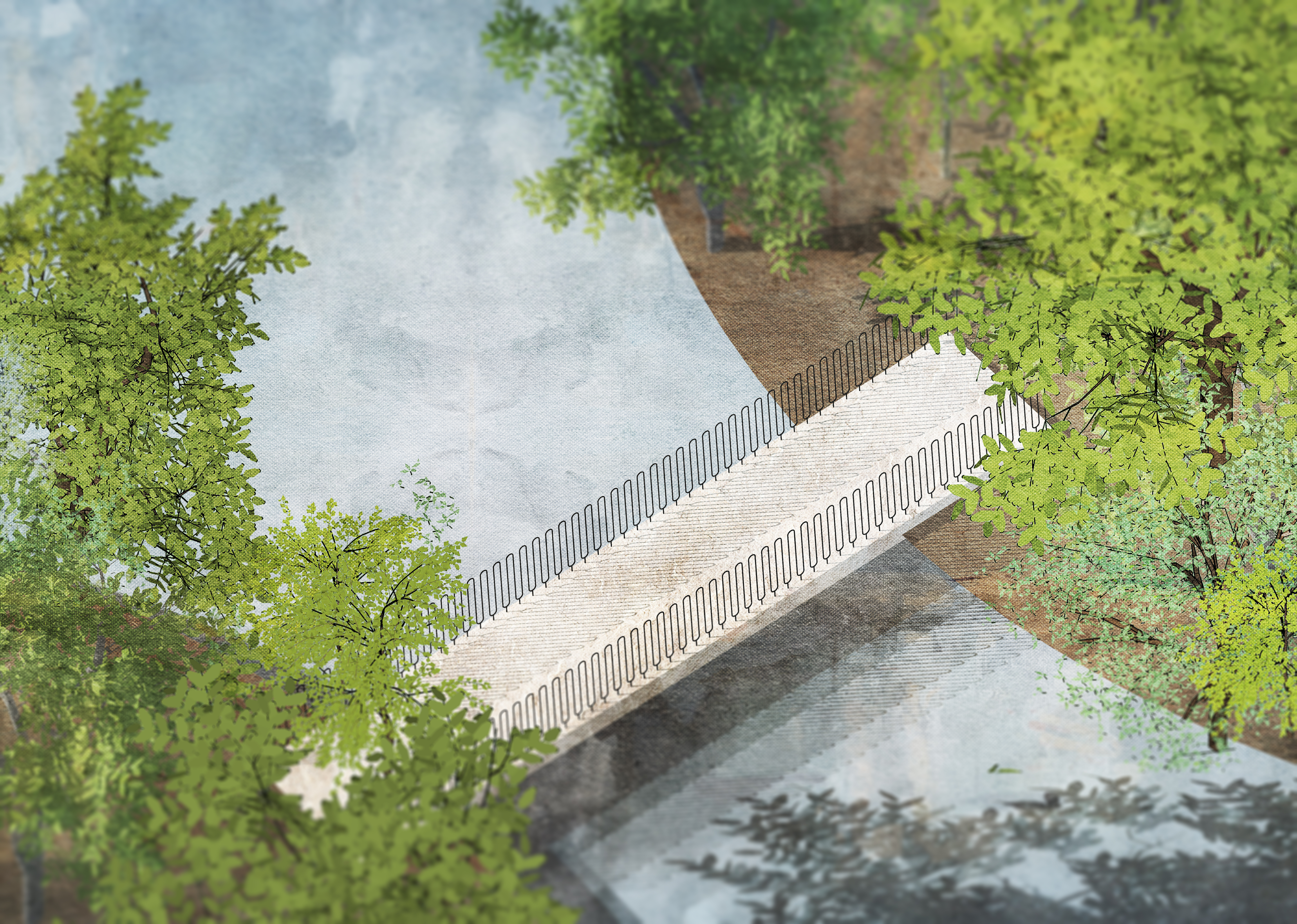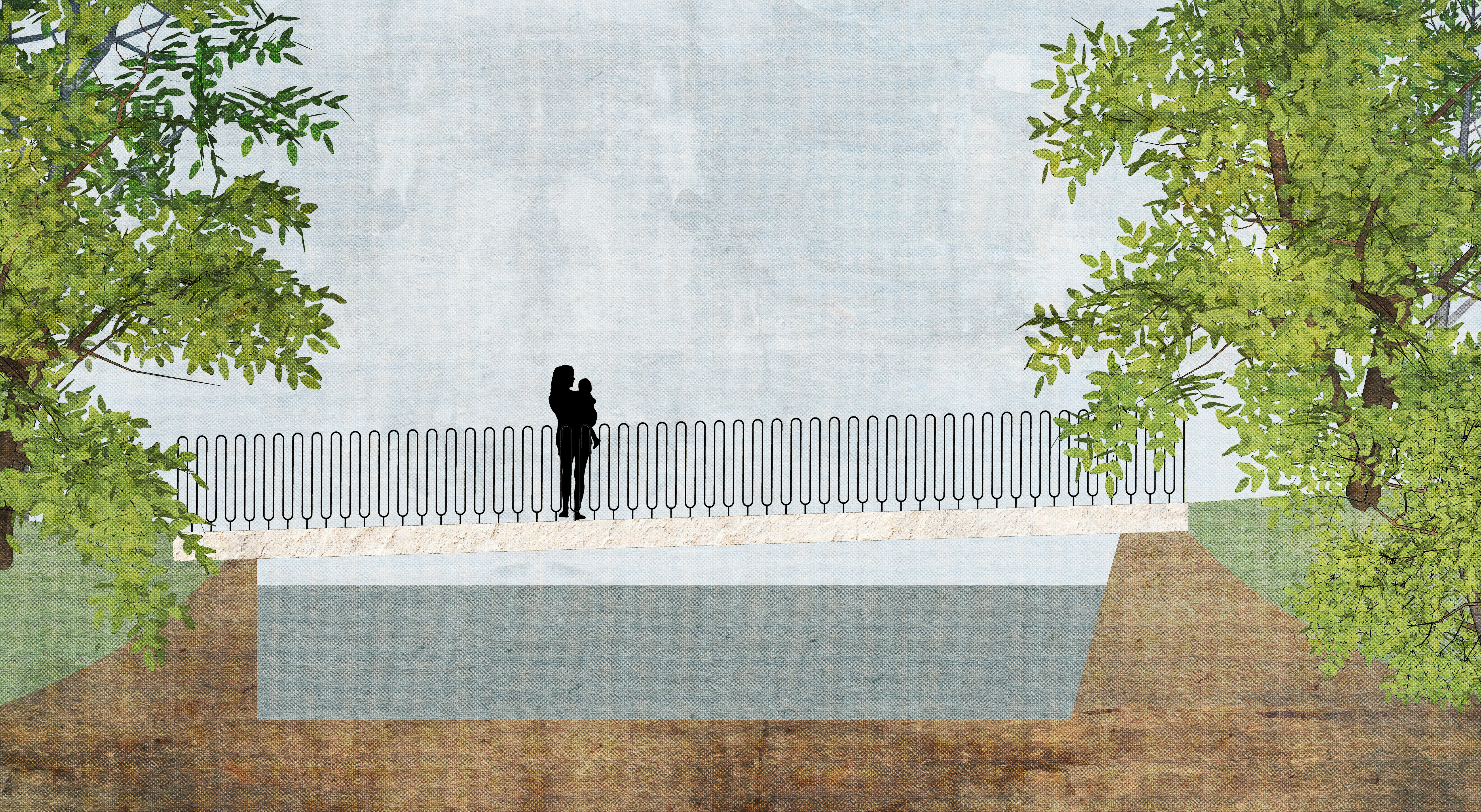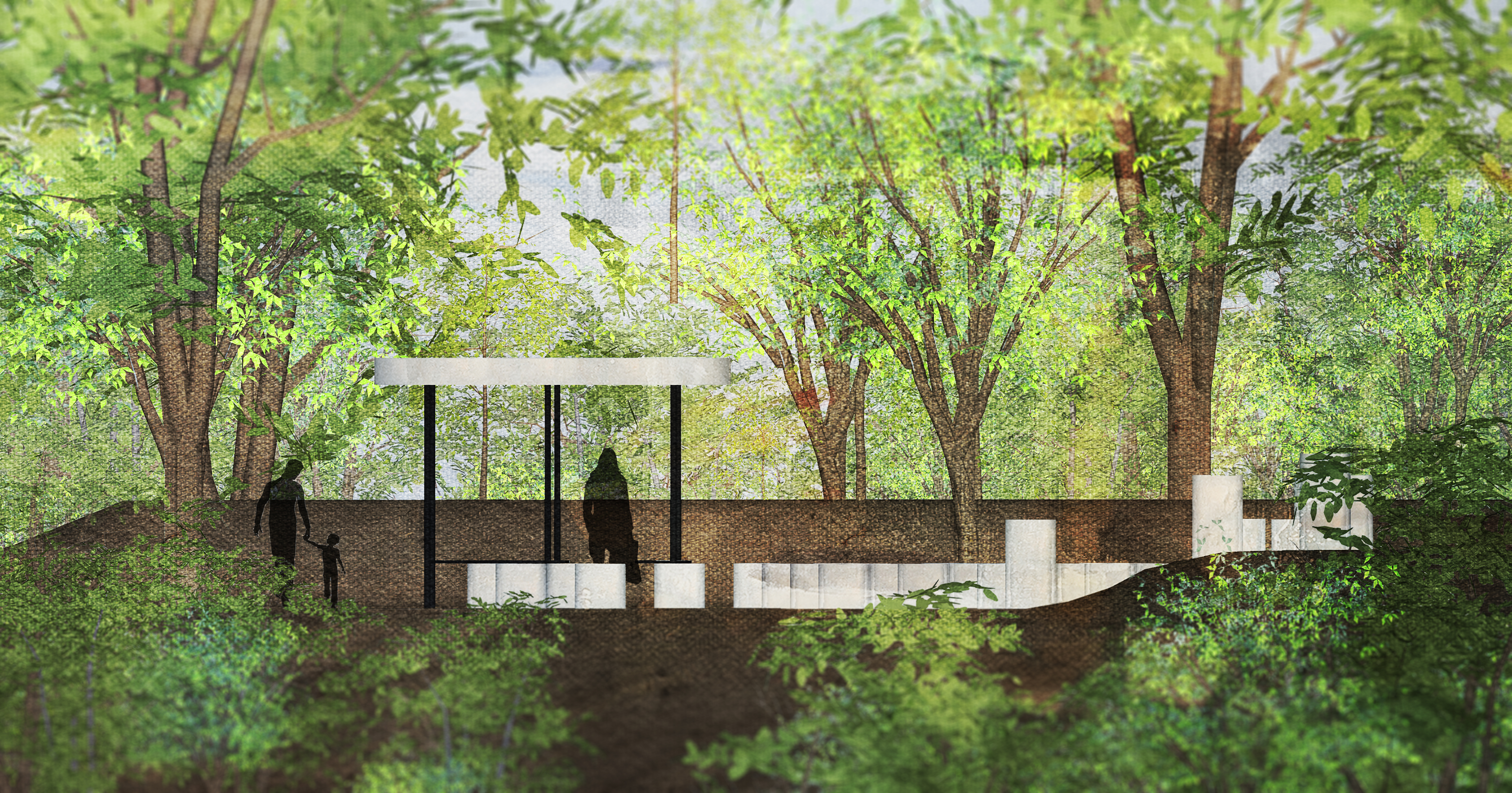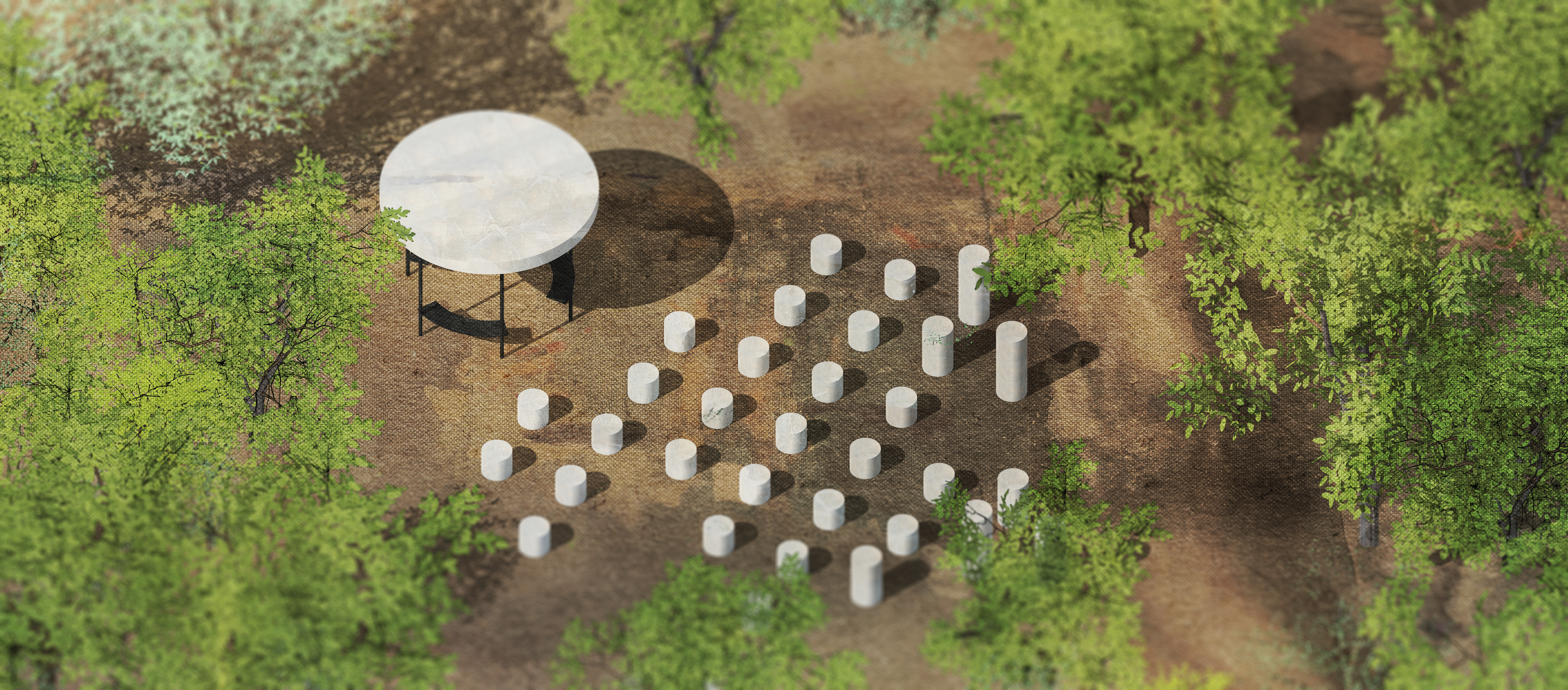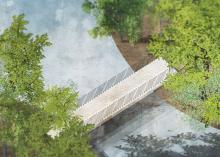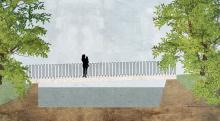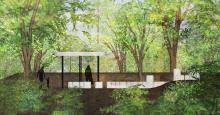To celebrate and commemorate Nelson Mandela’s outstanding achievements, Wayward was commissioned to design a memorial that encapsulates his commitment to humanity, diversity and reconciliation. The memorial will be a space for gathering, reflection and education. The memorial designs are inspired by Nelson Mandela’s gardens at Robben Island and Pollsmoor Prison in South Africa. The therapeutic and purposeful act of gardening helped Mandela keep focus, resilience and resolve throughout nearly three decades of incarceration. Mandela’s gardens were symbols of resistance, spaces for reflection and platforms for community dialogue. The food grown in Mandela’s gardens provided a resource to counter the food inequality linked to racial discrimination in South Africa’s prison system, which provided less nutritious rations to non-white prisoners. Mandela resourcefully bartered the food he grew for study materials, thereby facilitating the language studies which gave him a voice on prisoners’ rights and, later, key diplomatic negotiations. The draft manuscripts of his autobiography were also buried in his garden to keep them hidden, while copies of his memoir were smuggled off Robben Island so that his inspiring story could to be told to the world.
The Nelson Mandela Memorial Liverpool will be composed of a pavilion, bridge, and 32 cylindrical stoneworks inscribed with Nelson Mandela’s words. The stoneworks echo the sixteen 44-gallon oil drums that Mandela sliced in half on the rooftop of Pollsmoor Prison to grow a productive allotment, which acted as his escape from the monolithic concrete world that surrounded him.

